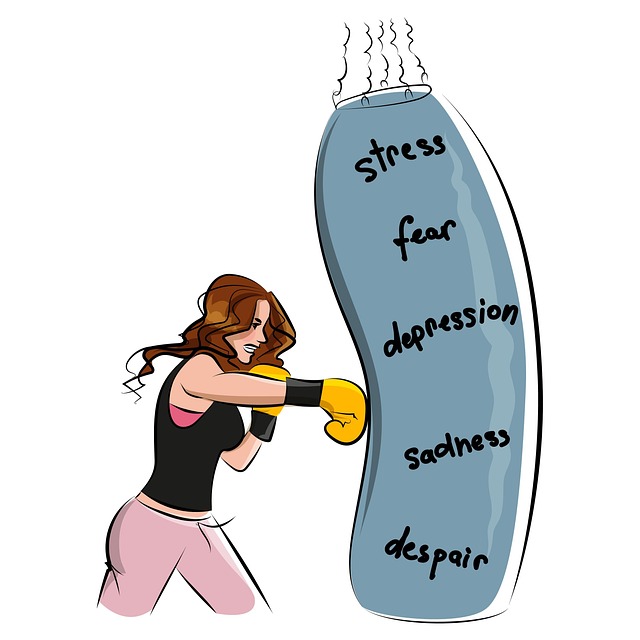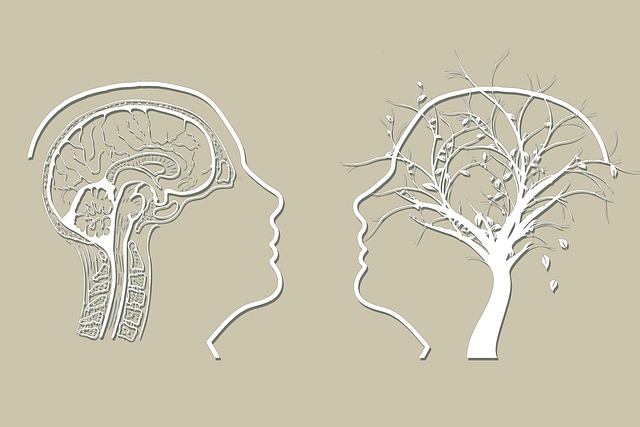Centennial American Sign Language Therapy (CASL) offers a unique, holistic approach to mental health recovery by focusing on social skills development. Their programs address isolation and interpersonal challenges through confidence-building, communication strategy teaching, and positive interaction promotion in social settings. CASL combines sign language with empathy-building and compassion cultivation, empowering clients to express themselves clearly and receive tailored support. This method enhances resilience, promotes emotional well-being, and reduces anxiety, ultimately strengthening human connections for individuals with various mental health conditions.
Social skills training is a powerful tool for managing mental health conditions, offering a unique approach to enhancing communication and building supportive relationships. This article explores the intricate link between social skills and mental well-being, focusing on Centennial American Sign Language (CASL) therapy as an innovative treatment method. We delve into common social interaction challenges faced by individuals with mental health issues and present practical strategies for skill development. Through inspiring case studies, we demonstrate how CASL therapy transforms lives, providing a new perspective on improving mental health outcomes.
- Understanding the Connection Between Social Skills and Mental Health
- The Role of Centennial American Sign Language Therapy (CASL) in Enhancing Communication
- Identifying Challenges: Common Social Interaction Barriers for Individuals with Mental Health Conditions
- Practical Strategies for Developing Effective Social Skills
- Case Studies: Success Stories of CASL Therapy in Improving Mental Well-being
Understanding the Connection Between Social Skills and Mental Health

Social skills play a pivotal role in mental health recovery and well-being, often overlooked yet deeply interconnected. The relationship between social interactions and mental health is complex; individuals with strong social connections tend to experience better emotional resilience and overall well-being. Conversely, social isolation and difficulties navigating interpersonal relationships can exacerbate symptoms of various mental health conditions, such as anxiety, depression, and psychosis.
At Centennial American Sign Language Therapy, we recognize that enhancing social skills can be a powerful tool for managing mental health. Our programs focus on building confidence in social settings, teaching effective communication strategies, and promoting positive interactions. By mastering these skills, individuals can improve their mood management, reduce stress, and enhance their overall ability to navigate social situations successfully. This holistic approach, combining ASL therapy with social skills training, empowers individuals to forge meaningful connections and live more fulfilling lives.
The Role of Centennial American Sign Language Therapy (CASL) in Enhancing Communication

Centennial American Sign Language Therapy (CASL) plays a pivotal role in enhancing communication for individuals navigating mental health conditions. By incorporating sign language into therapy, CASL offers a unique and effective approach to foster better expression and understanding. This method is particularly beneficial for those who find verbal communication challenging due to anxiety, trauma, or other mental health factors.
Empathy Building Strategies and Compassion Cultivation Practices are seamlessly integrated within CASL sessions. Sign language allows clients to convey their thoughts and emotions more clearly, enabling therapists to offer tailored support. Moreover, Resilience Building becomes easier as non-verbal cues facilitate open dialogue, encouraging individuals to explore and express themselves in a safe and supportive environment. This holistic approach ensures that communication is not just about words but also about understanding the nuances of human connection.
Identifying Challenges: Common Social Interaction Barriers for Individuals with Mental Health Conditions

Many individuals with mental health conditions face significant challenges when it comes to social interactions. These barriers can range from anxiety and depression that make simple conversations daunting, to more severe symptoms like hallucinations or delusions that distort reality and disrupt social connections. For instance, someone struggling with schizophrenia might find it hard to interpret social cues accurately, leading to misunderstandings and a sense of isolation. Similarly, individuals with social anxiety disorder often experience intense fear in various social situations, hindering their ability to engage in meaningful interactions.
Centennial American Sign Language Therapy plays a crucial role in addressing these challenges. By providing specialized therapy focused on emotional well-being promotion techniques and stress management workshops, individuals can learn coping strategies tailored to their specific needs. These programs empower participants with the skills to navigate social situations more comfortably. Additionally, fostering positive thinking through various therapeutic interventions helps reduce anxiety and depression, encouraging a more proactive approach to building and maintaining relationships.
Practical Strategies for Developing Effective Social Skills

Developing effective social skills is a crucial aspect of managing mental health conditions, and various practical strategies can make this process more accessible for individuals seeking support. One beneficial approach is incorporating self-awareness exercises into daily routines. By cultivating mindfulness, individuals learn to recognize their emotions and triggers, enabling them to navigate social interactions with increased confidence. For instance, Centennial American Sign Language Therapy offers sign language classes that enhance nonverbal communication skills, allowing people to express themselves more clearly in various settings.
Additionally, stress management techniques play a pivotal role in building resilience. Learning relaxation exercises and mindfulness practices can help individuals control their reactions in high-pressure social situations. Cultural sensitivity in mental healthcare practice is another vital component, ensuring that the unique needs of diverse populations are addressed. Through education and training, therapists and support groups can create inclusive environments, fostering better connections and understanding among participants.
Case Studies: Success Stories of CASL Therapy in Improving Mental Well-being

Social skills training has proven to be a game-changer for many individuals living with mental health conditions. One notable approach is Centennial American Sign Language (CASL) Therapy, which focuses on enhancing communication and social interaction through sign language. Case studies of CASL therapy have shown remarkable results in improving participants’ emotional intelligence and overall mental well-being. For instance, a study conducted among adolescents with autism spectrum disorder revealed significant improvements in their ability to initiate and maintain conversations after undergoing this unique therapy.
The success stories from CASL therapy highlight the importance of cultural sensitivity in mental healthcare practice. By incorporating sign language and mindfulness meditation techniques into treatment plans, therapists create inclusive environments that cater to diverse patient needs. This personalized approach not only facilitates better communication but also fosters a deeper sense of connection and understanding among individuals with varying mental health backgrounds.
Social skills training, as demonstrated through innovative approaches like Centennial American Sign Language Therapy (CASL), plays a pivotal role in enhancing mental well-being. By addressing common interaction barriers and implementing practical strategies, individuals with mental health conditions can navigate social situations more confidently. The success stories highlighted through case studies underscore the transformative potential of CASL therapy, demonstrating its ability to foster meaningful connections and improve overall mental health outcomes.














